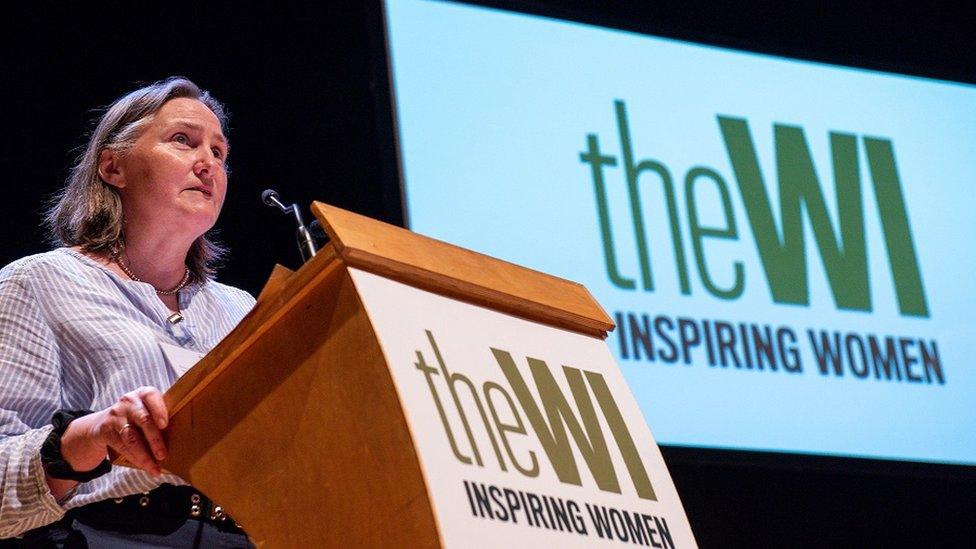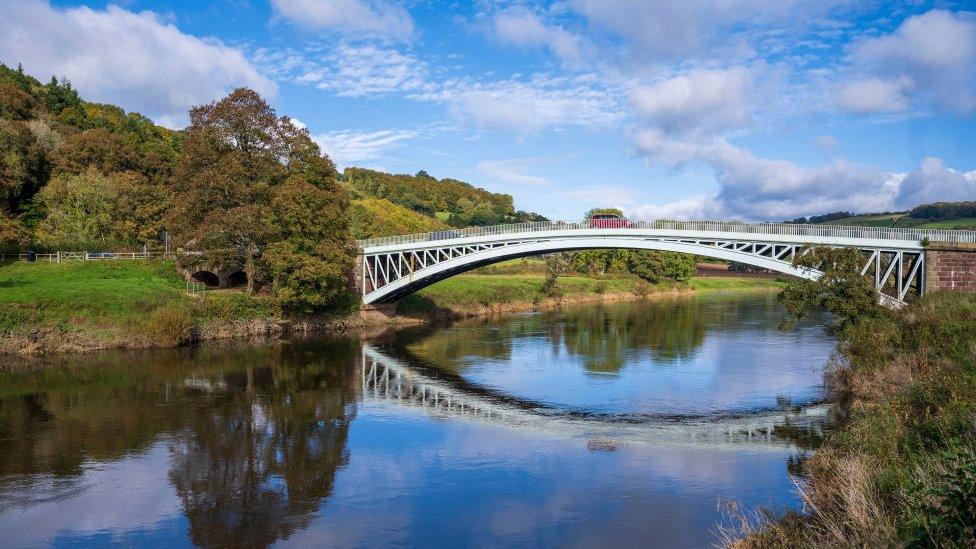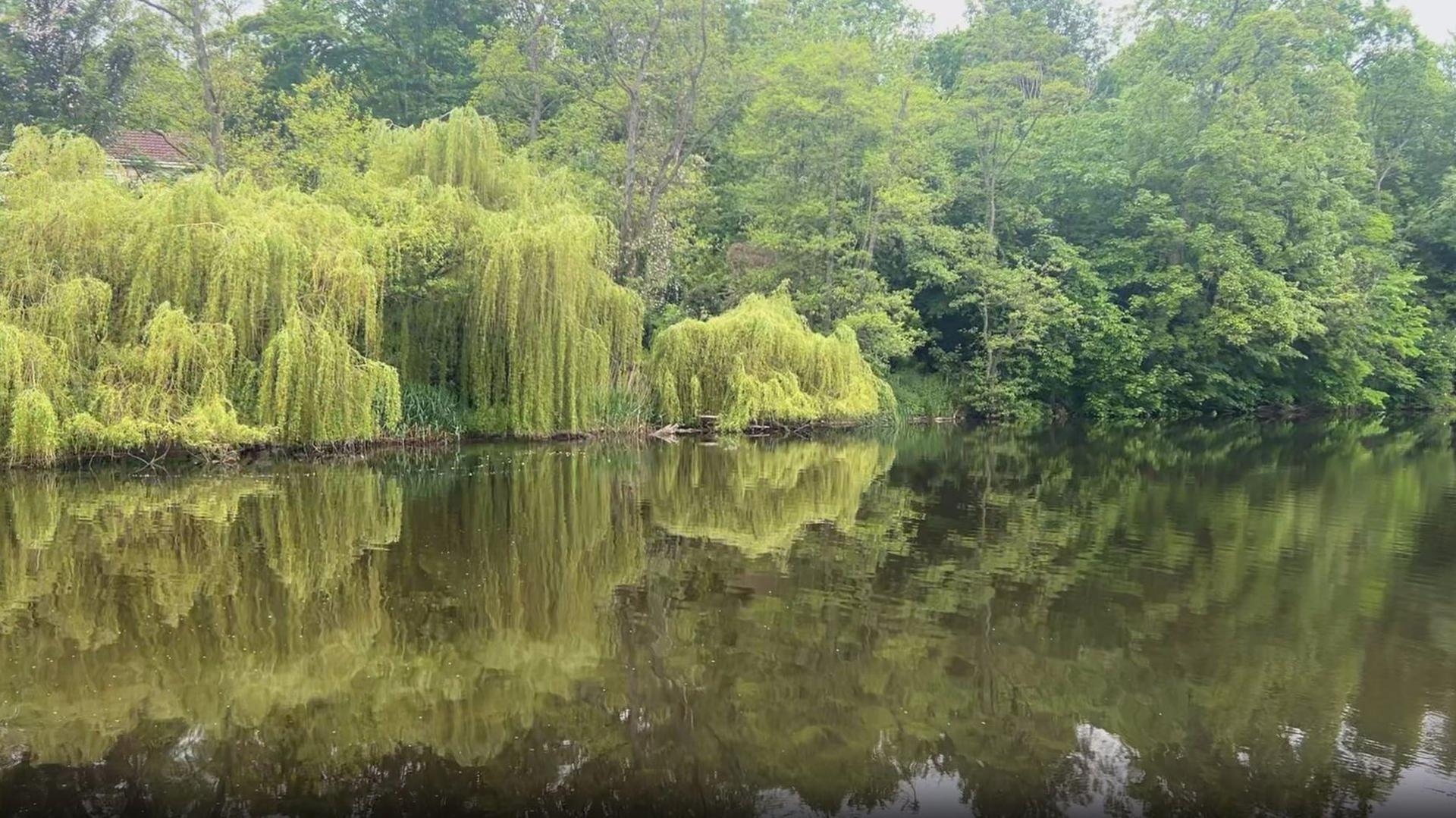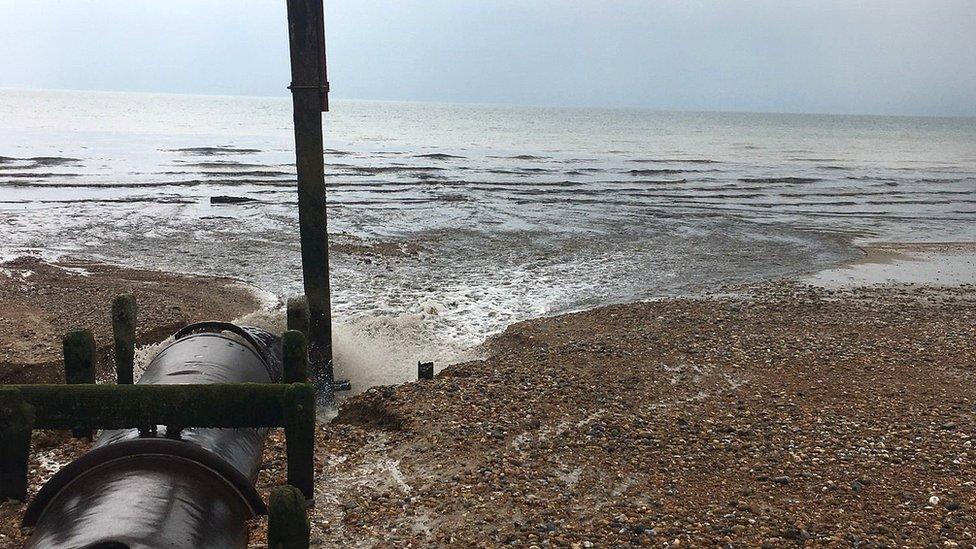Women's Institute pollution campaign a 'clarion call'
- Published

Christy Crouch, from the WI's Herefordshire branch, proposed the clean-up initiative
A member of the Women's Institute (WI) has welcomed a decision by the organisation to campaign to improve water quality in UK rivers.
Christy Crouch, of the WI's Herefordshire branch proposed the measure at the national annual meeting, which was backed by delegates.
It means members of its 180,000-strong network will support bids to get river stretches designated as bathing sites.
Ms Crouch said she was "absolutely delighted".
"I want to leave the world in a better state for my children - it's made me into a keen environmentalist," she said.
"I am absolutely delighted that my fellow members have passed the motion to help us corral our movement to do what we do best - speak to power and tell government and water companies to take action on this issue.
"Our aim is that site by site, we will clean up our waters for our health, our environment, and for future generations."
Gaining bathing site status would mean the Environment Agency has to carry out more intensive pollution monitoring to ensure the water is safe for swimming.

The health of the River Wye was recently updated to "unfavourable declining" because of a deterioration in key wildlife
The quality of water in the UK's rivers is "currently shameful" and the vote by members was a "clarion call" for action, Melissa Green, chief executive of the National Federation of Women's Institutes, said.
In 2022, raw sewage was dumped into the UK's rivers and seas for 1.75 million hours - or 825 times a day on average.
In the same year, MPs said the country's waterways were contaminated by a "chemical cocktail" of sewage, agriculture and road pollution.
Last month, the health rating of the River Wye was downgraded by Natural England after a decline in important species.
Intensive farming and sewage pollution caused algal blooms which deprived wildlife of oxygen, said campaigners in this case.
At the same time water suppliers in England said they were ready to spend £10bn on tackling sewage spills., after facing ever-growing criticism.
However, they warned water bills may have to rise.
Your device may not support this visualisation

Follow BBC West Midlands on Facebook, external, Twitter, external and Instagram, external. Send your story ideas to: newsonline.westmidlands@bbc.co.uk, external
Related topics
- Published31 May 2023

- Published30 May 2023

- Published18 May 2023

- Published13 January 2022
